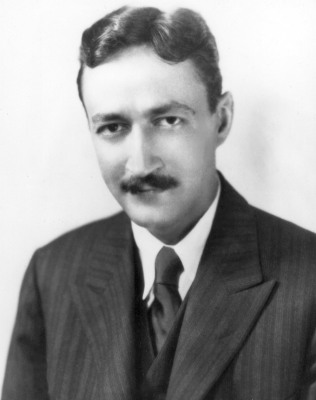
Toomer may, indeed, have arrived at that definition as a young man, but as a young artist, he wrestled with the question of racial identity through various protagonists bearing uncanny resemblances to himself. The first short story he wrote, the autobiographical “Bona and Paul,” composed in 1918, takes passing for white as its central theme. Equally important, his assertion that “Kabnis is me”—in his December 1922 letter to the novelist and social critic Waldo Frank, concerning his relationship to a character of mixed-race ancestry deeply conflicted about his Negro past—is another salient example of how Toomer’s ambivalence about race manifested itself in Cane. Further, in a comment to a reporter in 1934 and in the manuscript of his unpublished autobiography, Toomer made the highly unlikely suggestion (given all extant documentation) that his grandfather P.B.S. Pinchback, the most famous black politician in the Reconstruction era, opportunistically passed for black to gain political advantage from the freedmen in New Orleans.
Toomer’s deeply conflicted position on his black ancestry is also reflected in the publication of Cane. Indeed, his angry reaction to Frank’s introduction, with its matter-of-fact identification of the author as a Negro, and later his refusal to cooperate with Horace Liveright, the publisher, in “featuring Negro” in the marketing of Cane in fall 1923, reflect that conflict. He all but said to Liveright: “I was not a Negro.” However, according to the pioneering literary critic Darwin Turner, Toomer, in his correspondence with the writer Sherwood Anderson just a year before the publication of Cane, “never opposed Anderson’s obvious assumption that he was ‘Negro.’ In fact, Anderson began the correspondence because Toomer had been identified to him as a ‘Negro.'” Toomer’s contradictory stances vis-à-vis Liveright and Anderson reveal the depth of his ambivalence in the weeks before the publication of the work that would link him to a literary tradition from which he would spend the rest of his life attempting to flee.
Toomer became angry with Alain Locke, one of the architects of the Harlem Renaissance, for reprinting excerpts of Cane in the The New Negro in 1925 (he was silent regarding Locke’s decision to reprint the poem “Song of the Son” in the 1925 issue of the white magazine Survey Graphic). Toomer’s attitude smacks of denial and ingratitude, given Locke’s early and consistent support.
And then in 1934, almost 10 years after the publication of The New Negro, Toomer refused to contribute to Nancy Cunard’s 1934 anthology The Negro, stating that “though I am interested in and deeply value the Negro, I am not a Negro.” In that same year, following the announcement of his marriage to Marjorie Content, Toomer, most improbably, observed to the newspaper the Baltimore Afro-American that “I would not consider it libelous for anyone to refer to me as a colored man, but I have not lived as one, nor do I really know whether there is colored blood in me or not.” Toomer then went on to make his claim that his grandfather was a white man who passed for black, saying that “my maternal grandfather … referred to himself as having Negro blood in order to get Negro votes.” But note, the death certificate of Toomer’s grandfather, including details provided by his son, Toomer’s “beloved uncle Bismarck,” lists Pinchback’s race as “colored.”
By that time, Walter Pinchback, Toomer’s uncle, was the only living relative who could challenge Toomer’s public denials of his Negro ancestry. In a conciliatory gesture toward his nephew (who was the only member of his family to pass), Walter (whom the Baltimore Afro-American carefully says identified himself his entire life as “colored,” adding that his mother, father, and grandfather did as well) said that “Toomer had a right to belong to either race he desired.” In a series of three articles about Toomer and his race, the newspaper, after repeatedly underscoring Toomer’s Negro identity and pointing out that he graduated from all-black Dunbar High School and “has always been referred to as a colored writer and was known in colored circles here and in New York some years ago,” said it supported Toomer’s decision, but as a blow against segregation and anti-miscegenenation laws: “Every time the races are scrambled, by legal marriage, we set an example for thousands of white residents in Dixie who believe in social equality only after dark.”
Toomer’s claims stand out as particularly disingenuous in light of facts like his weeklong sojourn with Frank in 1922 in Spartanburg, S.C., where they masqueraded as (in Toomer’s words) “blood brothers,” that is, as Negroes. After serving as Frank’s “host in a black world,” Toomer returned to Washington, and for two weeks worked as an assistant to the manager of the Howard Theatre, which served the capital’s African-American community, and where he gathered material for such stories as “Box Seat” and “Theater,” published in Cane.
Why is it so important, as we read Cane, to understand Toomer’s conflicts over his racial identity? What light does it shine on scholarship about his work, about African-American literature, and the way our society has dealt with race? The first reason is the simple, or rather complicated, fact that Toomer himself thought it was important. Important? Toomer obsessed over it, endlessly circling back upon it in the comfortable isolation of his upper-middle-class home in Bucks County, Pa.
(CLICK BELOW TO CONTINUE TO PAGE 3)
